Find Help
More Items From Ergsy search
-
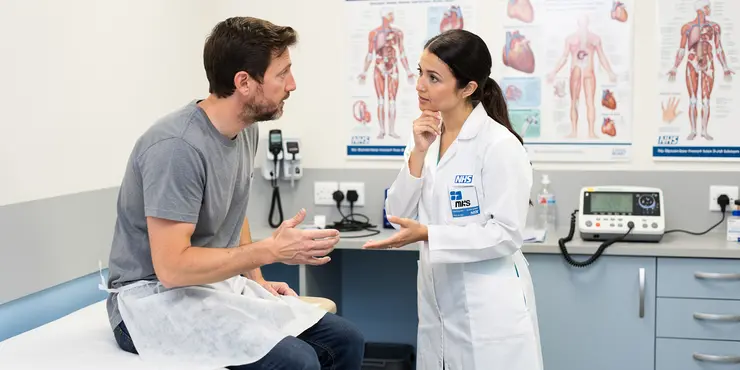
Is my abnormal heart rhythm dangerous?
Relevance: 100%
-
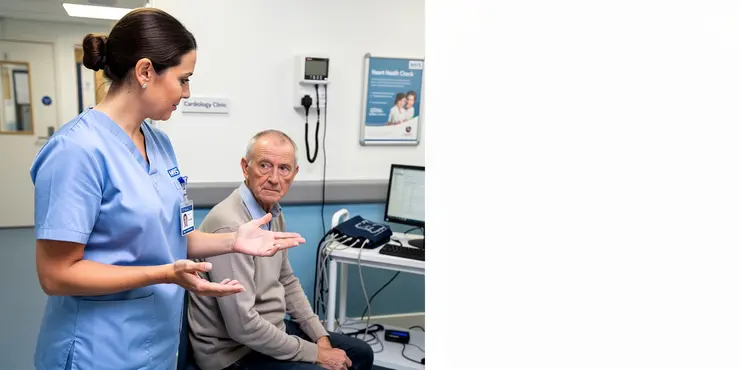
Is my abnormal heart rhythm dangerous?
Relevance: 95%
-
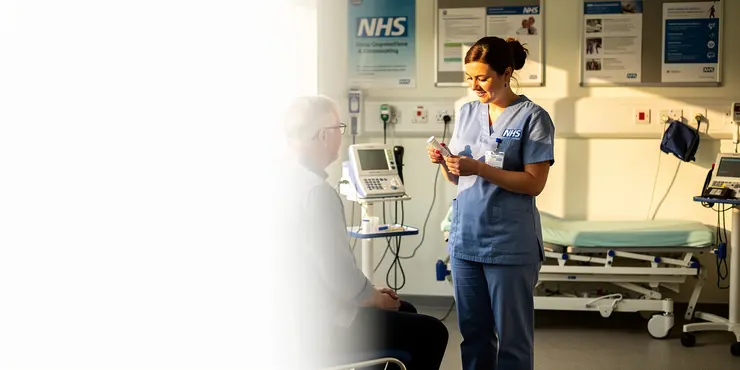
What is the relationship between cortisol and the circadian rhythm?
Relevance: 31%
-
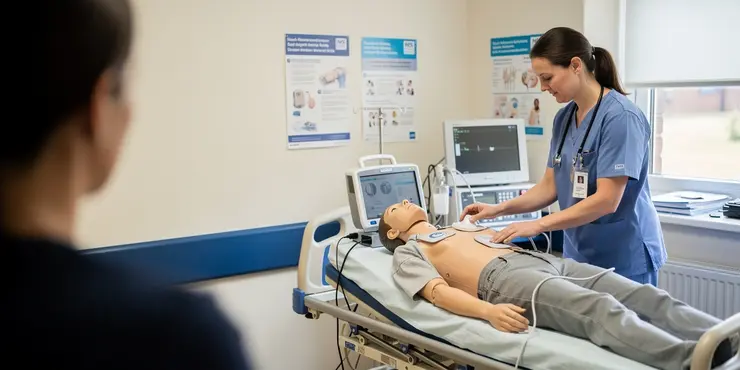
Can a defibrillator restart a stopped heart?
Relevance: 31%
-
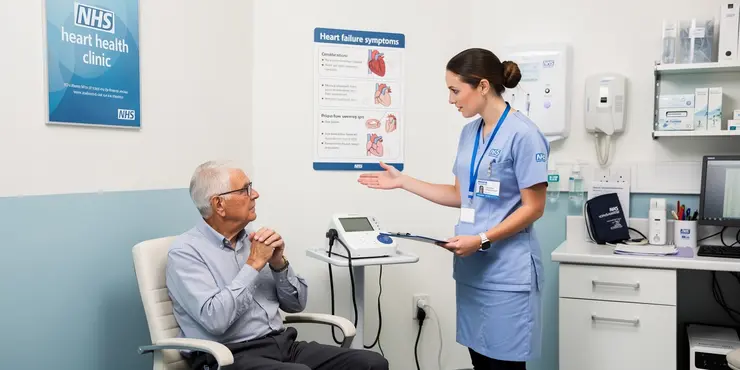
How is heart failure diagnosed?
Relevance: 29%
-
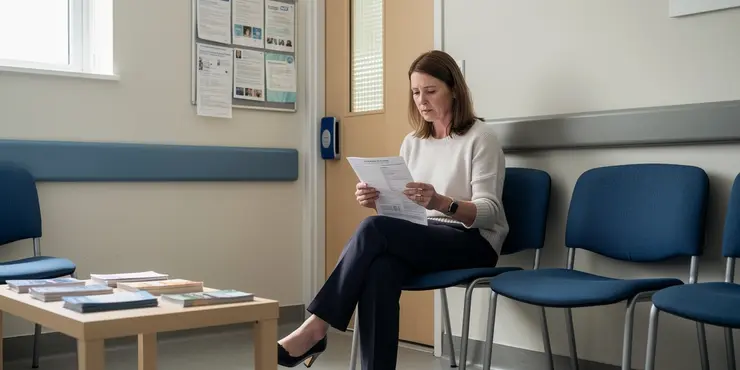
What if my mammogram results are abnormal?
Relevance: 28%
-
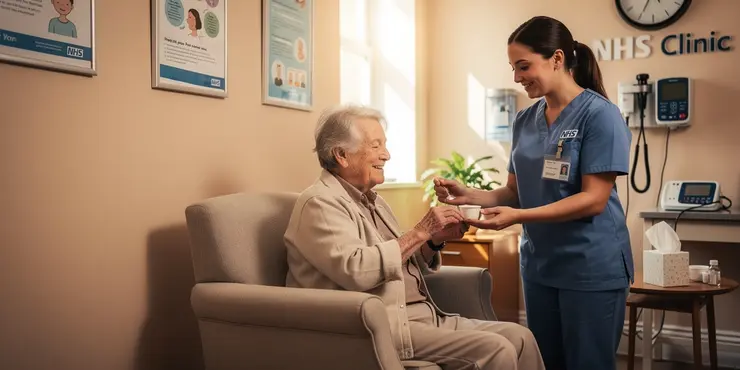
Medicines of the heart
Relevance: 25%
-
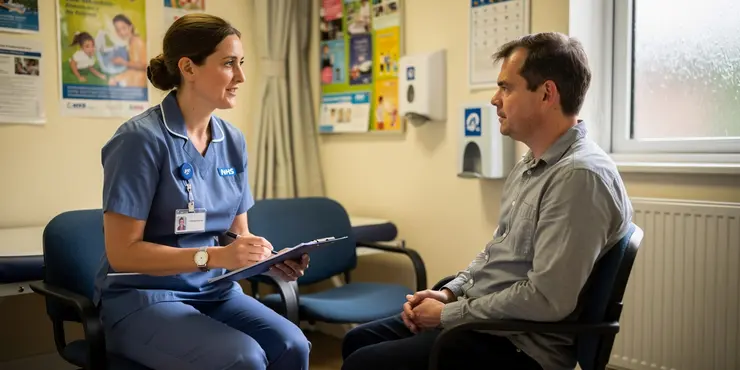
What is dangerous driving?
Relevance: 24%
-
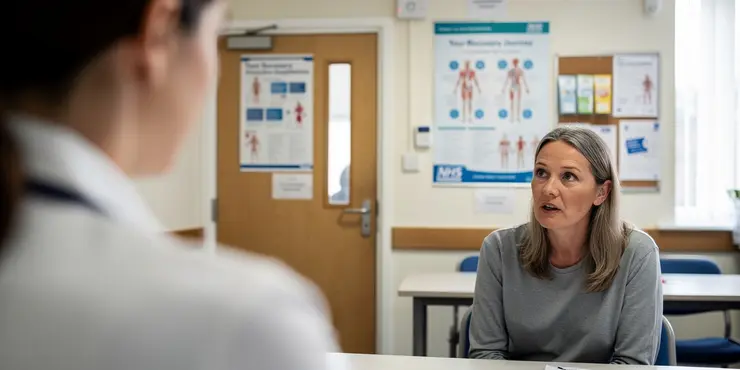
What are the long-term effects of a heart attack?
Relevance: 24%
-

Heart Failure : When the heart becomes stiff?
Relevance: 24%
-
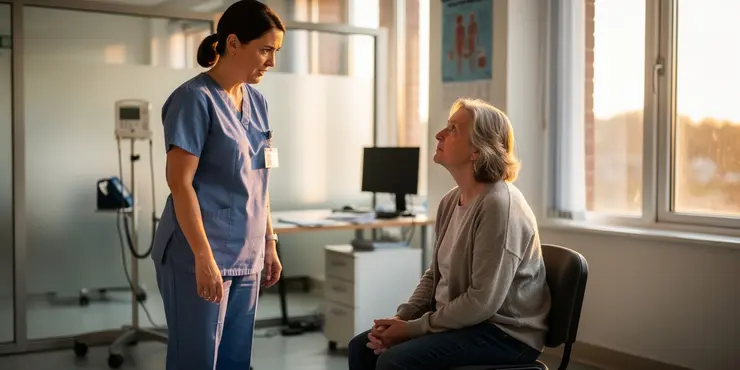
What is considered dangerous driving?
Relevance: 23%
-
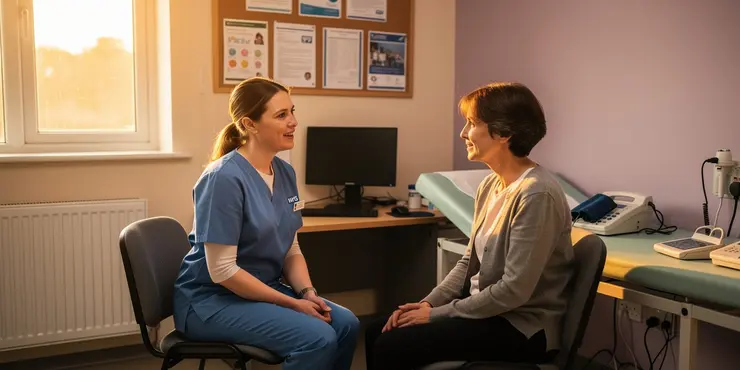
Why is sleep apnea dangerous?
Relevance: 23%
-
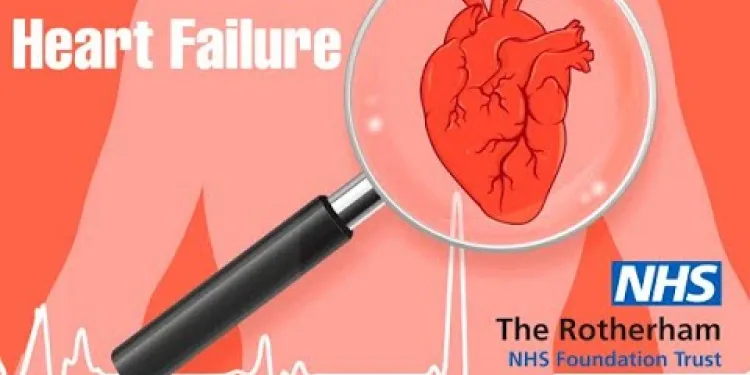
Heart Failure : Heart failure that cannot pump
Relevance: 23%
-
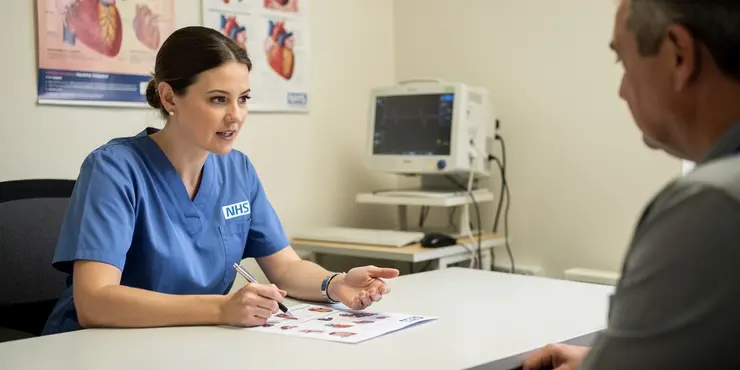
How do beta-blockers contribute to heart attack prevention?
Relevance: 23%
-
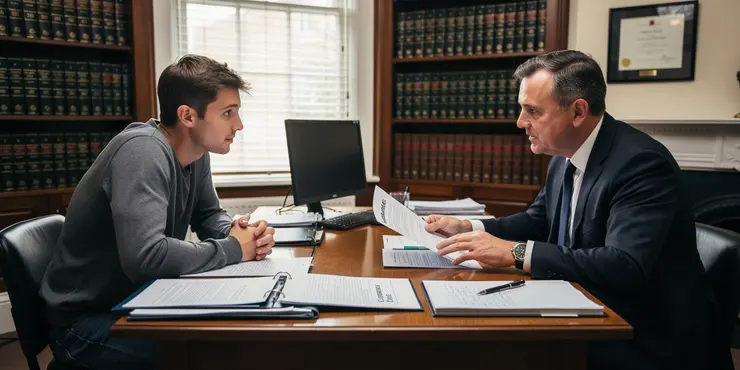
What are the consequences of dangerous driving?
Relevance: 23%
-

Heart Failure : The normal heart
Relevance: 22%
-
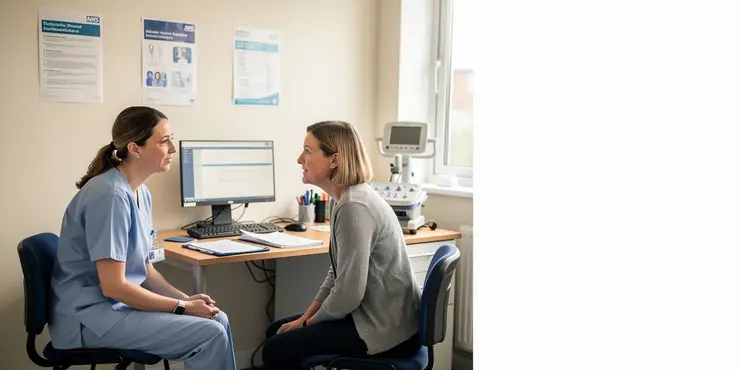
Are there specific laws against dangerous driving?
Relevance: 22%
-
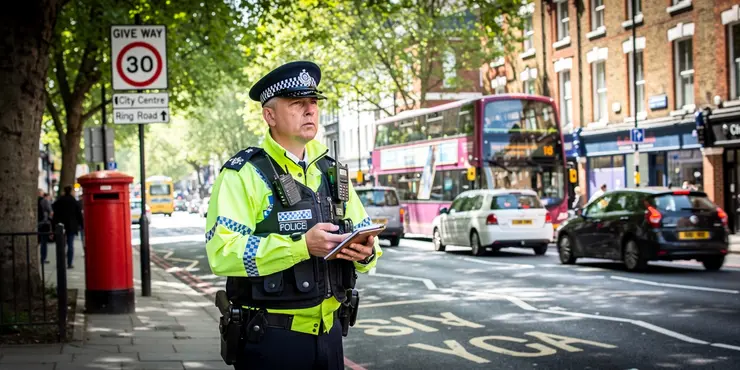
How is dangerous driving detected by police?
Relevance: 22%
-

What is the prognosis for someone with heart failure?
Relevance: 22%
-
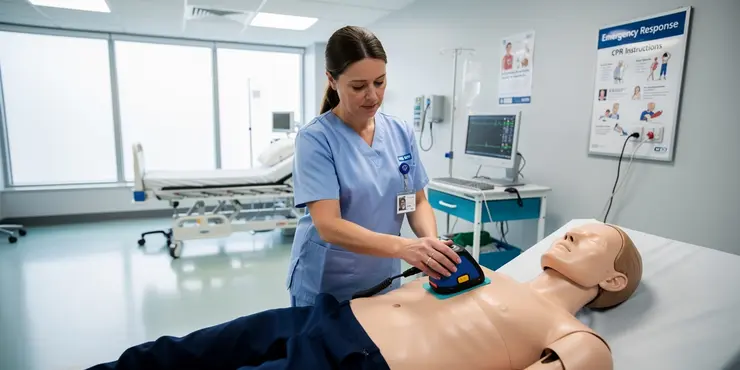
What is a defibrillator?
Relevance: 22%
-
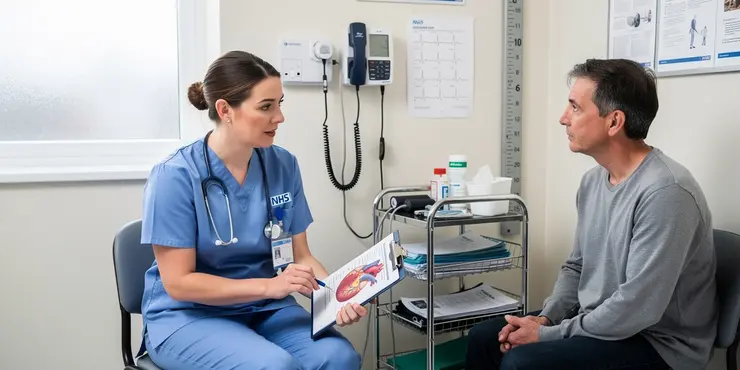
What causes heart failure?
Relevance: 22%
-
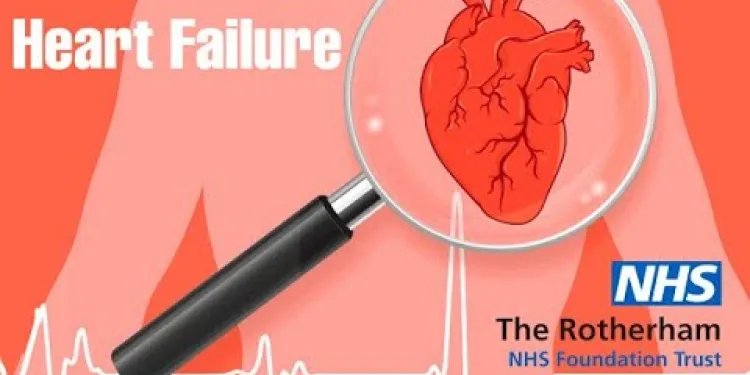
Heart Failure : What is heart failure?
Relevance: 22%
-
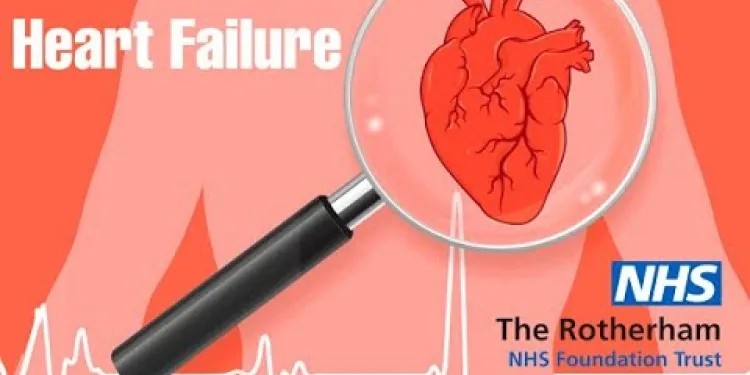
Heart Failure : Symptoms of heart failure
Relevance: 22%
-
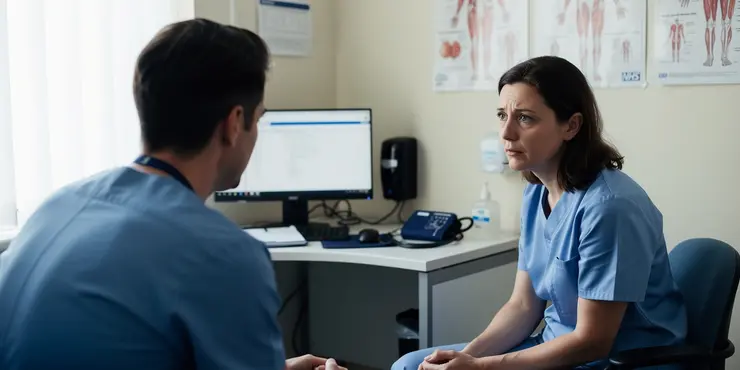
What steps should I take if a screening test shows abnormal results?
Relevance: 22%
-

Can staying in a car during a heatwave be dangerous?
Relevance: 21%
-

Can dangerous driving lead to a criminal record?
Relevance: 21%
-
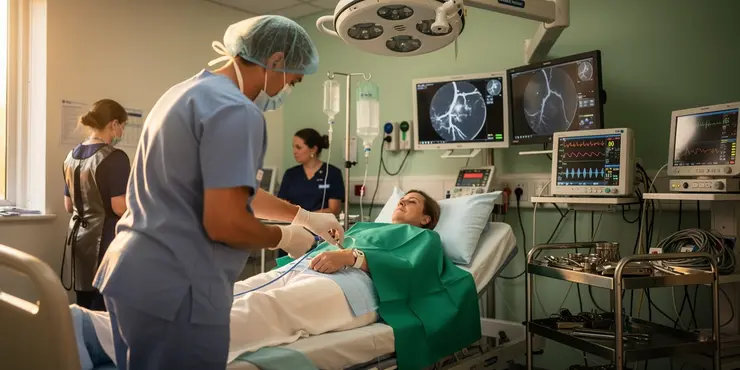
Heart stents
Relevance: 21%
-
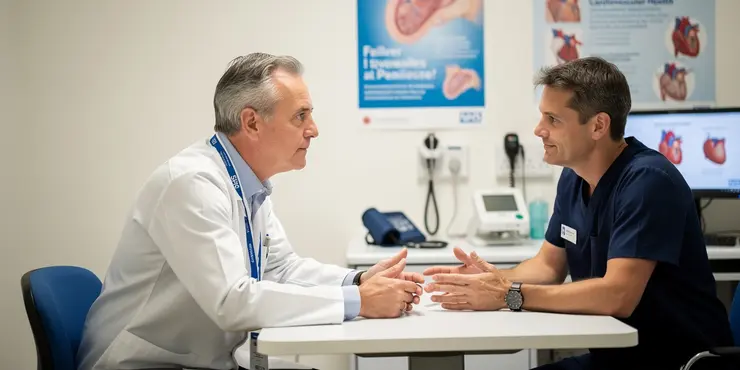
Are there different types of heart failure?
Relevance: 21%
-
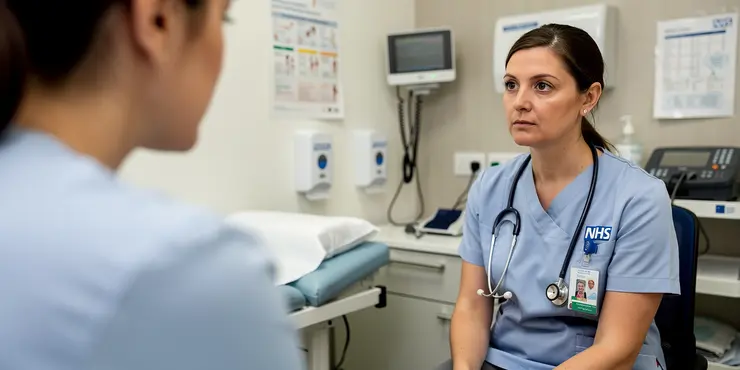
How can dangerous driving affect my insurance?
Relevance: 21%
-
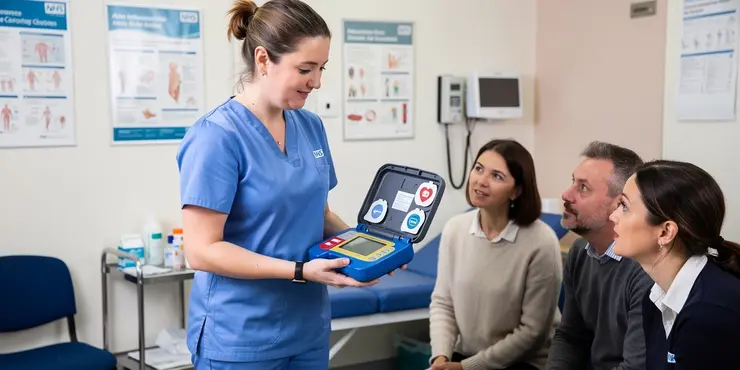
How does a defibrillator work?
Relevance: 21%
-
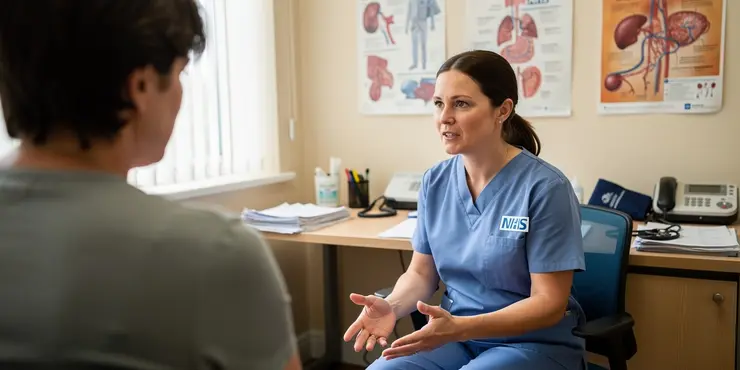
Why is thrombosis dangerous?
Relevance: 21%
-

What is the difference between careless driving and dangerous driving?
Relevance: 20%
-

What should I do if I encounter a dangerous driver on the road?
Relevance: 20%
-
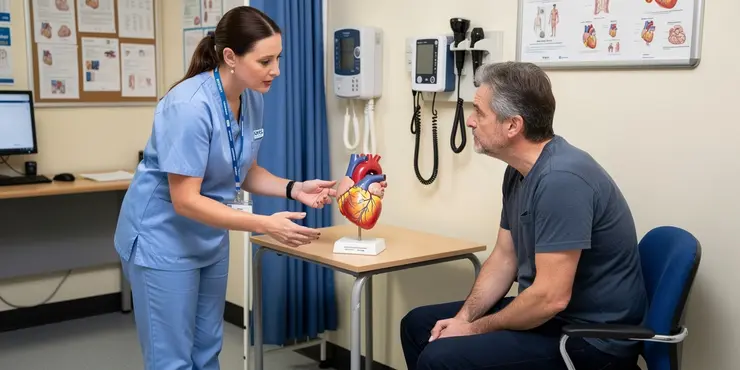
What is heart valve disease?
Relevance: 20%
-
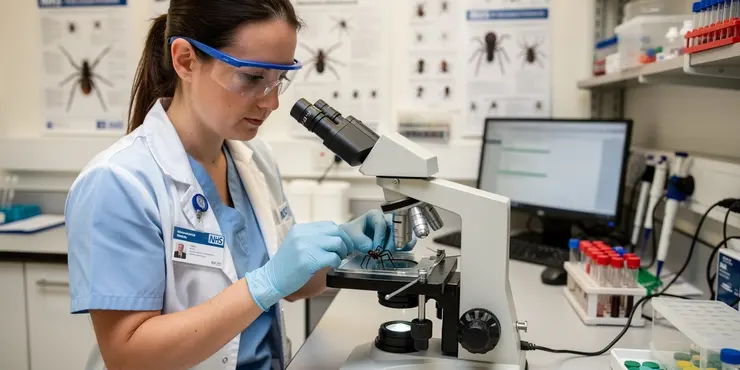
What is the most dangerous spider in the UK?
Relevance: 20%
-
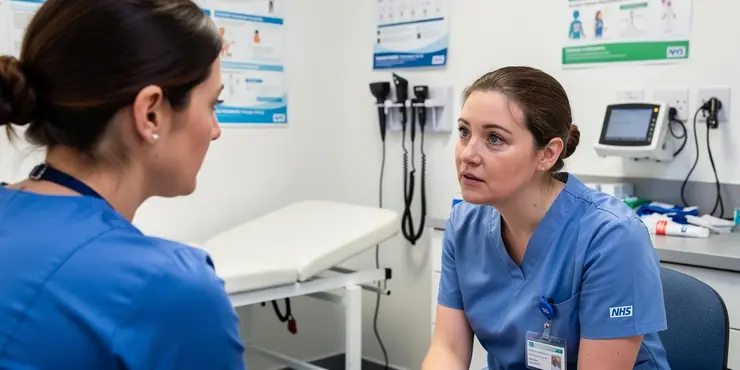
Can distracted driving be classified as dangerous driving?
Relevance: 20%
-
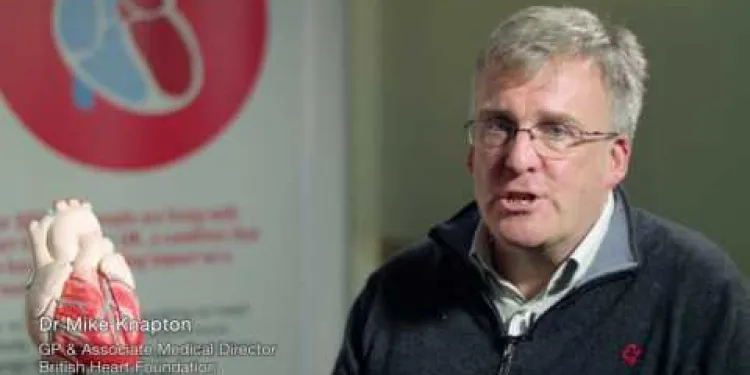
Heart failure introduction
Relevance: 20%
-
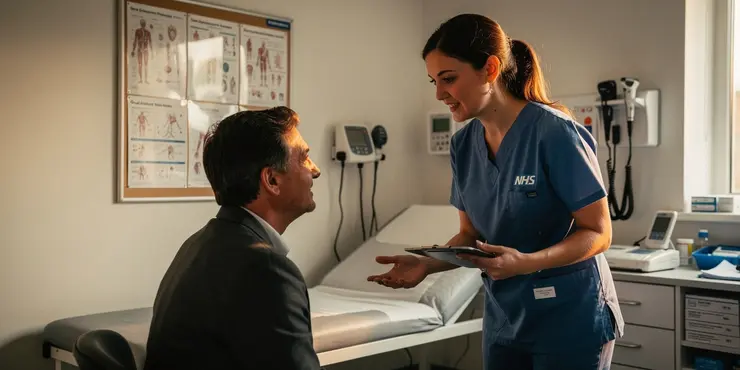
Can heart failure affect other organs?
Relevance: 20%
-
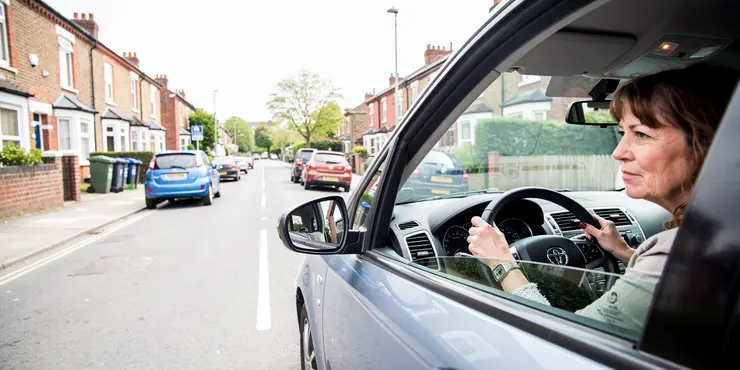
Is driving too slowly considered dangerous driving?
Relevance: 20%
-
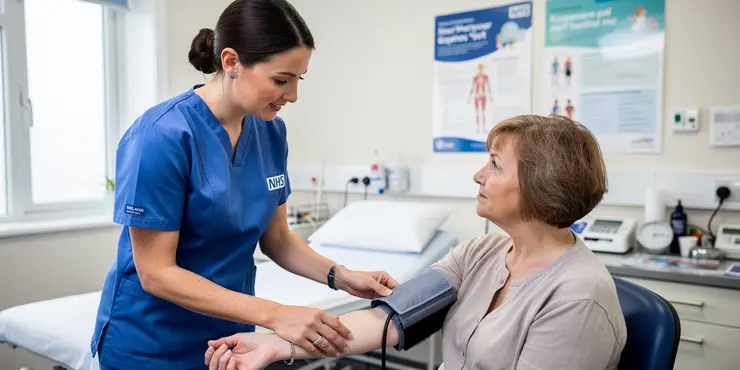
Is it dangerous driving to run a red light?
Relevance: 20%
Understanding Abnormal Heart Rhythms: Is Yours Dangerous?
An abnormal heart rhythm, known medically as an arrhythmia, occurs when the electrical impulses that coordinate heartbeats do not function properly, causing your heart to beat too fast, too slow, or irregularly. Living in the United Kingdom, access to healthcare and information can help manage any concerns or symptoms effectively.
Types of Arrhythmias
Arrhythmias are broadly categorized based on the speed of the heart rate. Tachycardia is when the heart rate is too fast, over 100 beats per minute, whereas bradycardia happens when the heart rate falls below 60 beats per minute. Understanding the type you have is crucial, as some are harmless, while others require immediate medical attention.
Symptoms to Watch Out For
Common symptoms include palpitations, dizziness, chest pain, shortness of breath, fatigue, or fainting spells. However, not all arrhythmias cause noticeable symptoms. If you experience any of these symptoms, particularly if they are severe or frequent, it's essential to consult a healthcare professional. The NHS offers guidance and support for such symptoms and can direct you to appropriate care.
Potential Risks
Some arrhythmias, like atrial fibrillation, increase the risk of stroke or heart failure. Ventricular fibrillation can also be life-threatening and requires urgent treatment. Therefore, understanding the gravity and potential consequences of your specific condition is vital in determining if your abnormal heart rhythm poses a danger.
Diagnosis and Treatment
Your GP can refer you to a cardiologist for tests such as an electrocardiogram (ECG) to diagnose the type and cause of an arrhythmia. Treatments vary from lifestyle changes and medications to medical procedures or surgery, depending on severity and type. The UK healthcare system provides a range of options for managing these conditions effectively.
When to Seek Medical Advice
If you're experiencing symptoms suggestive of an arrhythmia, particularly if they’re sudden or severe, seek medical advice promptly. Remember, early diagnosis and treatment can prevent complications. The NHS 111 service is available for non-emergency medical concerns, offering guidance and support across the UK.
Understanding Abnormal Heart Rhythms: Is Yours Dangerous?
Your heart has a natural beat. Sometimes, it doesn't beat like it should. This is called an arrhythmia. It can make your heart beat too fast, too slow, or unevenly. If you live in the UK, you can get help from doctors and nurses to check your heart.
Types of Arrhythmias
An arrhythmia can make your heart beat too fast. This is called tachycardia. It happens when your heart beats more than 100 times a minute. If your heart beats too slow, it's called bradycardia. This means your heart beats less than 60 times a minute. Some types of arrhythmias are not serious, but others need quick care.
Symptoms to Watch Out For
Watch for signs like feeling your heart skip, feeling dizzy, having chest pain, finding it hard to breathe, feeling very tired, or fainting. But not all arrhythmias make you feel unwell. If you have these signs often or they are strong, see a doctor. The NHS can help you get the right care.
Potential Risks
Some arrhythmias, like atrial fibrillation, can increase the risk of having a stroke or heart failure. Ventricular fibrillation can be very dangerous and needs fast treatment. It is important to know if your heart rhythm problem is risky.
Diagnosis and Treatment
Your regular doctor, called a GP, can send you to a heart doctor. They might do a test called an ECG to find out what is wrong with your heart rhythm. Treatments can include changing how you live, taking medicine, or having a procedure or surgery. The NHS can help you with these treatments.
When to Seek Medical Advice
If you think you have an arrhythmia and it's sudden or feels strong, see a doctor. Early help can stop problems. If it is not an emergency, you can call NHS 111 for advice and support across the UK.
Frequently Asked Questions
What is an abnormal heart rhythm?
An abnormal heart rhythm, also known as arrhythmia, means your heart beats too fast, too slow, or with an irregular pattern.
What are the symptoms of an abnormal heart rhythm?
Symptoms can include palpitations, dizziness, shortness of breath, chest pain, or feeling faint.
What causes abnormal heart rhythms?
Causes can include heart disease, stress, caffeine, alcohol, medications, or other medical conditions.
How is an abnormal heart rhythm diagnosed?
It is diagnosed through tests such as an ECG, Holter monitor, or event recorder, which track the heart's electrical activity.
What types of abnormal heart rhythms are there?
Common types include atrial fibrillation, atrial flutter, ventricular tachycardia, and bradycardia.
Is an abnormal heart rhythm dangerous?
Some arrhythmias can be harmless, while others can lead to serious health issues like stroke or heart failure.
When should I see a doctor about my heart rhythm?
Seek medical advice if you experience symptoms such as severe dizziness, fainting, chest pain, or if the arrhythmia persists.
How can an abnormal heart rhythm be treated?
Treatment options include medication, lifestyle changes, procedures like cardioversion, or devices such as pacemakers.
Can lifestyle changes help with abnormal heart rhythms?
Yes, managing stress, limiting caffeine and alcohol intake, and maintaining a healthy lifestyle can help manage symptoms.
Can I live a normal life with an abnormal heart rhythm?
Many people live well with abnormal heart rhythms with the appropriate treatment and lifestyle management.
Does an abnormal heart rhythm mean I have heart disease?
Not necessarily. While heart disease can cause arrhythmias, they can also occur independently or due to other factors.
Can stress cause an abnormal heart rhythm?
Yes, stress and anxiety can trigger or worsen arrhythmias in some individuals.
Can abnormal heart rhythms be prevented?
Some can be prevented by maintaining a healthy lifestyle, managing risk factors, and avoiding known triggers.
Do abnormal heart rhythms require surgery?
Not always. However, in some cases, procedures like ablation or implantation of devices may be recommended.
Is an irregular heartbeat always a sign of a medical emergency?
Not always, but it is important to understand the cause and seek medical evaluation, especially if accompanied by severe symptoms.
What is an abnormal heart rhythm?
An abnormal heart rhythm means your heart is not beating in the normal way. Your heart could be beating too fast, too slow, or in an uneven pattern. This can sometimes make you feel unwell.
If you find it hard to understand, you can use pictures or videos to help learn more. Asking someone you trust to explain in simple words can also help. There are apps that can read text out loud to you, making it easier to understand.
A heart rhythm that is not normal is called arrhythmia. This means your heart might beat too fast, too slow, or not in a regular way.
What happens when your heart does not beat normally?
Your heart might feel like it is skipping beats, beating too fast, or too slow. This can make you feel dizzy, tired, or short of breath. It can also make your chest feel funny or hurt.
If you are worried about your heart, it is good to tell a grown-up or see a doctor.
Tools that can help you:
- A heart rate monitor can show how your heart is beating.
- Breathing slowly and resting can help you feel better.
- Drawing or writing about how you feel can help you understand it.
Signs that something is wrong can be:
- Your heart beats very fast.
- You feel dizzy.
- It's hard to breathe.
- Your chest hurts.
- You feel like you might fall over.
What makes the heart beat in a strange way?
Some things can make this happen. It might be heart problems, feeling very worried, drinking coffee, drinking alcohol, taking medicine, or other health problems.
How do doctors find out if your heart beats differently?
Doctors find out what is wrong with the heart by doing special tests. These tests look at how the heart beats. They use machines like an ECG, Holter monitor, or event recorder to check the heart's electrical activity.
What kinds of unusual heartbeats are there?
Sometimes, a person's heart does not beat the way it should. This is called an unusual heartbeat.
Here are some kinds of unusual heartbeats:
- Too Fast: The heart beats very quickly.
- Too Slow: The heart beats very slowly.
- Irregular: The heart beats in a mixed-up way.
If you want help reading, you can ask someone, use an audiobook, or try a text-to-speech tool.
Common heart problems have different names. Some are called atrial fibrillation, atrial flutter, ventricular tachycardia, and bradycardia.
Can a strange heart beat be harmful?
A strange heart beat is when your heart does not beat like it normally does. It might beat too fast, too slow, or at uneven times.
Sometimes, a strange heart beat can be harmful. It can make you feel dizzy or very tired. It might mean you need to see a doctor.
Here are some things you can do if you think your heart beats strange:
- Tell a grown-up how you feel.
- Visit a doctor to make sure you are okay.
- Use a heart monitor if the doctor says you need one.
Remember, it is important to listen to your body. If you think your heart is not beating right, it is a good idea to ask for help.
Some problems with your heart's beat are not dangerous. But others can make you very sick, like having a stroke or your heart not working properly.
When should I go to the doctor for my heart beats?
Go see a doctor if you feel very dizzy, faint, have chest pain, or if the uneven heartbeat doesn't go away.
How can we fix a heartbeat that is not normal?
A heartbeat that is not normal is called an abnormal heart rhythm. Here are some ways to help fix it:
- Medicines: Some medicines can help your heart beat the right way.
- Surgery: Doctors might do a special operation to help your heart.
- Pacemaker: A pacemaker is a small device that helps control your heartbeat.
- Healthy Living: Eating good food, doing exercise, and not smoking can help your heart.
If you or someone you know has this problem, it's important to see a doctor for help.
You can get help in different ways. You might take medicine, change how you live, have a special medical procedure, or use a device like a pacemaker.
Can changing how we live help the heart beat normally?
Yes, changing some things in your life can help your heart beat right. Here are a few ideas:
- Eat Healthy: Try to eat fruits, vegetables, and foods that are good for you.
- Exercise: Move your body often, like playing, walking, or doing a sport.
- Sleep Well: Get enough sleep so your body can rest.
- Relax: Do things that make you calm, like reading or listening to music.
If you're not sure, you can talk to a doctor or a nurse for help.
Helpful Tools:
- Apps: Use a fitness app to remind you to exercise.
- Timer: Set a timer to help remember bedtime.
Yes, you can feel better by doing a few things. Try to stay calm. Don't have too much coffee or alcohol. Live a healthy life. These can help you feel better.
Can I live a normal life with an unusual heartbeat?
Yes, you can live a normal life with an unusual heartbeat. Here are some tips to help:
- Visit your doctor regularly. They can help you manage your heartbeat.
- Take your medicine as your doctor tells you.
- Eat healthy foods like fruits and vegetables.
- Exercise a little every day, like walking.
- Try to relax and stay calm.
- Avoid smoking and too much caffeine.
If you have questions or feel worried, talk to your doctor or nurse. They are there to help you.
Lots of people can live well with unusual heartbeats if they get the right treatment and make good lifestyle choices.
Does a different heartbeat mean I have heart problems?
Your heart has a beat like a drum. Sometimes it can change and sound different. This is called an abnormal heart rhythm.
If your heartbeat is different, it does not always mean you have heart problems. It is important to talk to a doctor. They can help you understand what is happening.
Try using simple tools, like drawing pictures or playing heart sounds, to learn more about your heart. This can help make things easier!
No, not always. Heart disease can make you have a funny heart rhythm. But your heart can also beat funny by itself or because of other things.
Can stress cause a heartbeat problem?
Yes, stress and worry can make heart problems start or get worse for some people.
How can we stop strange heartbeats?
You can stop some problems by living healthy, staying away from things that make you sick, and avoiding things you know might cause problems.
Here are some tips to help:
- Eat healthy food and drink lots of water.
- Do exercises like walking, running, or playing sports.
- Try to rest and get enough sleep every night.
- Ask an adult or a friend to help you remember things.
Do you need surgery for unusual heartbeats?
Not always. But sometimes, a doctor might suggest treatments like taking away a small part of the body (called ablation) or putting in a special device to help.
Is an Irregular Heartbeat Always an Emergency?
Sometimes, the heart does not beat in a regular way. This is called an irregular heartbeat. It might feel like your heart is skipping a beat or beating too fast.
An irregular heartbeat is not always a big problem. But, sometimes, it can mean you need a doctor.
If you feel worried or sick, it is a good idea to talk to a doctor. The doctor can check if everything is okay.
There are tools that can help you understand more about your heart. A heart rate monitor can show how your heart beats. A doctor can explain how to use it.
Remember, it is always good to tell a grown-up or a doctor if something feels wrong. They can help you feel better.
Not always. But it is important to know why it is happening. You should see a doctor, especially if you feel very sick.
Useful Links
This website offers general information and is not a substitute for professional advice.
Always seek guidance from qualified professionals.
If you have any medical concerns or need urgent help, contact a healthcare professional or emergency services immediately.
Some of this content was generated with AI assistance. We’ve done our best to keep it accurate, helpful, and human-friendly.
- Ergsy carfully checks the information in the videos we provide here.
- Videos shown by Youtube after a video has completed, have NOT been reviewed by ERGSY.
- To view, click the arrow in centre of video.
- Most of the videos you find here will have subtitles and/or closed captions available.
- You may need to turn these on, and choose your preferred language.
- Go to the video you'd like to watch.
- If closed captions (CC) are available, settings will be visible on the bottom right of the video player.
- To turn on Captions, click settings .
- To turn off Captions, click settings again.
More Items From Ergsy search
-

Is my abnormal heart rhythm dangerous?
Relevance: 100%
-

Is my abnormal heart rhythm dangerous?
Relevance: 95%
-

What is the relationship between cortisol and the circadian rhythm?
Relevance: 31%
-

Can a defibrillator restart a stopped heart?
Relevance: 31%
-

How is heart failure diagnosed?
Relevance: 29%
-

What if my mammogram results are abnormal?
Relevance: 28%
-

Medicines of the heart
Relevance: 25%
-

What is dangerous driving?
Relevance: 24%
-

What are the long-term effects of a heart attack?
Relevance: 24%
-

Heart Failure : When the heart becomes stiff?
Relevance: 24%
-

What is considered dangerous driving?
Relevance: 23%
-

Why is sleep apnea dangerous?
Relevance: 23%
-

Heart Failure : Heart failure that cannot pump
Relevance: 23%
-

How do beta-blockers contribute to heart attack prevention?
Relevance: 23%
-

What are the consequences of dangerous driving?
Relevance: 23%
-

Heart Failure : The normal heart
Relevance: 22%
-

Are there specific laws against dangerous driving?
Relevance: 22%
-

How is dangerous driving detected by police?
Relevance: 22%
-

What is the prognosis for someone with heart failure?
Relevance: 22%
-

What is a defibrillator?
Relevance: 22%
-

What causes heart failure?
Relevance: 22%
-

Heart Failure : What is heart failure?
Relevance: 22%
-

Heart Failure : Symptoms of heart failure
Relevance: 22%
-

What steps should I take if a screening test shows abnormal results?
Relevance: 22%
-

Can staying in a car during a heatwave be dangerous?
Relevance: 21%
-

Can dangerous driving lead to a criminal record?
Relevance: 21%
-

Heart stents
Relevance: 21%
-

Are there different types of heart failure?
Relevance: 21%
-

How can dangerous driving affect my insurance?
Relevance: 21%
-

How does a defibrillator work?
Relevance: 21%
-

Why is thrombosis dangerous?
Relevance: 21%
-

What is the difference between careless driving and dangerous driving?
Relevance: 20%
-

What should I do if I encounter a dangerous driver on the road?
Relevance: 20%
-

What is heart valve disease?
Relevance: 20%
-

What is the most dangerous spider in the UK?
Relevance: 20%
-

Can distracted driving be classified as dangerous driving?
Relevance: 20%
-

Heart failure introduction
Relevance: 20%
-

Can heart failure affect other organs?
Relevance: 20%
-

Is driving too slowly considered dangerous driving?
Relevance: 20%
-

Is it dangerous driving to run a red light?
Relevance: 20%


